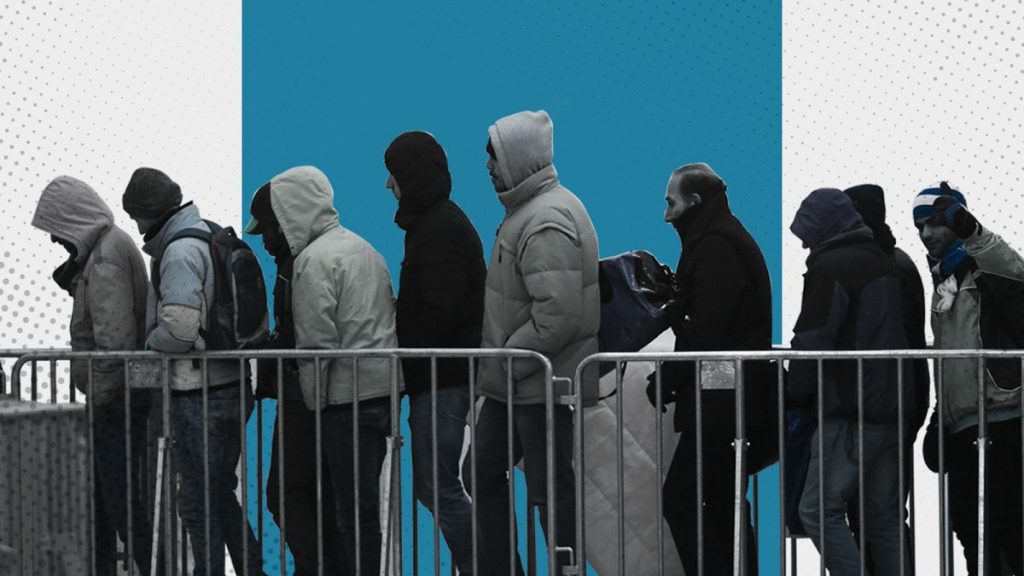The unexpected fall of Bashar al-Assad’s regime in Syria has triggered a complex and sensitive debate within the European Union concerning the future of over one million Syrian refugees currently residing within its borders. This sudden shift in the Syrian political landscape has prompted several European nations to temporarily suspend decisions on pending asylum applications from Syrian nationals, citing the volatile and uncertain conditions in their homeland. Austria has taken a more assertive stance, proposing the suspension of family reunification programs and introducing a repatriation and deportation plan targeting specific groups of Syrian refugees, including those deemed criminal, those perceived as failing to integrate culturally, and those reliant on social welfare. This hardline approach has sparked criticism from human rights advocates and some members of the European Parliament, who argue that such measures are premature given the ongoing instability in Syria.
The debate surrounding the return of Syrian refugees predates Assad’s fall. Earlier this year, Italian Prime Minister Giorgia Meloni advocated for a re-evaluation of the EU’s approach towards Syria, suggesting a cautious rapprochement with the Assad regime. This proposal garnered support from several other member states. Now, with Assad’s removal, the discussion has intensified, focusing on the critical question of whether the refugee status granted to Syrians should be revoked, potentially paving the way for their repatriation. The majority of Syrian refugees in the EU were granted this status based on the well-founded fear of persecution under Assad’s rule. The principle of non-refoulement prohibits the deportation of individuals to countries where they face risks of persecution, torture, or ill-treatment.
The legal framework governing the cessation of refugee status within the EU is derived from the 2011 Qualification Directive, which mirrors the 1951 Refugee Convention. This directive outlines specific criteria for revoking refugee status, including voluntary repatriation and a significant and non-temporary change in circumstances that eliminates the original fear of persecution. While the downfall of the Assad regime might appear to constitute such a change, the legal caveat requiring a demonstrably safe and stable environment in Syria presents a significant challenge. The future political landscape of Syria remains uncertain, with various factions vying for power, including Hayat Tahrir al-Sham (HTS), a group with a history linked to terrorism. Assessing the potential risks faced by returning refugees, including minorities and those with differing political or religious views, is crucial.
The current situation in Syria presents numerous challenges to determining the safety and feasibility of repatriation. The country is devastated after years of civil war, facing widespread poverty, a lack of essential services, and continued insecurity. The rise of HTS, despite attempts to rebrand itself, raises concerns about human rights abuses and the imposition of strict Islamic law. The political transition is far from complete, and the nature of the future government and its commitment to human rights and the rule of law remain unknown. These complexities necessitate a careful and individualized assessment of each refugee’s situation rather than sweeping generalizations about the overall safety of Syria. International organizations like the UNHCR have stressed the need for continued monitoring and assessment of the evolving situation on the ground before advocating for large-scale returns.
The debate over Syrian refugees is unfolding against a backdrop of increasing political pressure within the EU to adopt stricter migration policies. Centrist parties have increasingly embraced hardline stances on migration in an attempt to counter the rise of far-right and populist movements that often exploit anti-immigrant sentiment. The 2015 migration crisis, which saw a significant influx of refugees from Syria, Afghanistan, and Iraq, significantly impacted European politics, contributing to the rise of these anti-immigrant movements. This has led to a broader reassessment of the EU’s migration policies, including exploring controversial proposals such as external processing centers in third countries.
The potential repatriation of Syrian refugees now becomes intertwined with these wider policy discussions. While some member states perceive the change in Syrian leadership as an opportunity to accelerate returns, humanitarian organizations and human rights advocates strongly caution against premature and potentially dangerous repatriations. They emphasize the need for a thorough and individualized assessment of each refugee’s situation, ensuring their safety and agency are prioritized over political expediency. The evolving situation in Syria demands careful monitoring and evaluation to determine whether the conditions genuinely allow for safe and dignified returns, upholding the fundamental principles of international refugee law. The debate is likely to continue as the political landscape in Syria further develops and the EU grapples with its evolving migration policies.














